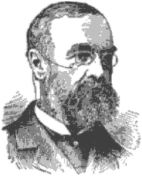A Quote by Ezra Hall Gillett
We are always looking to the future; the present does not satisfy us. Our ideal, whatever it may be, lies further on.
Related Quotes
There is, however, no advantage in reflections on the past further than may be of service to the present. For the future we must provide by maintaining what the present gives us and redoubling our efforts; it is hereditary to us to win virtue as the fruit of labour, and you must not change the habit, even though you should have a slight advantage in wealth and resources; for it is not right that what was won in want should be lost in plenty.
We must eradicate root and branch any fear and dread in our soul concerning the future that is coming towards us... We must develop composure with regard to all the feelings and sensations we have about the future; we must anticipate with absolute equanimity whatever may be coming towards us, thinking only that whatever it may be will be brought to us by the wisdom-filled guidance of the universe.
Psychoanalysts are fond of pointing out that the past is alive in the present. But the future is alive in the present too. The future is not some place we’re going to, but an idea in our mind now. It is something we’re creating, that in turn creates us. The future is a fantasy that shapes our present.
We don't always know the details of our future. We do not know what lies ahead. We live in a time of uncertainty. We are surrounded by challenges on all sides. Occasionally discouragement may sneak in to our day; frustration may invite itself into our thinking; doubt might enter about the value of our work. In these dark moments Satan whispers in our ears that we will never be able to succeed, that the price isn't work the effort, and that our small part will never make a difference. He, the father of all lies, will try to prevent us from seeing the end from the beginning.
Let each of us examine his thoughts; he will find them wholly concerned with the past or the future. We almost never think of the present, and if we do think of it, it is only to see what light is throws on our plans for the future. The present is never our end. The past and the present are our means, the future alone our end. Thus we never actually live, but hope to live, and since we are always planning how to be happy, it is inevitable that we should never be so.
How can we satisfy ourselves without going on in infinitum? And, after all, what satisfaction is there in that infinite progression? Let us remember the story of the Indian philosopher and his elephant. It was never more applicable than to the present subject. If the material world rests upon a similar ideal world, this ideal world must rest upon some other; and so on, without end. It were better, therefore, never to look beyond the present material world.
Man can only be certain about the present moment. But is that quite true either? Can he really know the present? Is he in a position to make any judgment about it? Certainly not. For how can a person with no knowledge of the future understand the meaning of the present? If we do not know what future the present is leading us toward, how can we say whether this present is good or bad, whether it deserves our concurrence, or our suspicion, or our hatred?
Forgiveness does not mean that we have to continue to relate to those who have done us harm. In some cases the best practice may be to end our connection, to never speak to or be with a harmful person again. Sometimes in the process of forgiveness a person who hurts or betrayed us may wish to make amends, but even this does not require us to put ourselves in the way of further harm.

































